Focus on Milwaukee and Chicago – Can the United States put the Cold War and McCarthyism behind it?

Bernie Sander’s challenge for the Democratic Party’s nomination in 2016 was unique for a number of reasons, not least for the fact that he was the first mainstream Presidential contender to openly call himself a socialist. The fact that he nearly won the contest was remarkable, especially given that ‘Crooked’ Hilary and her friends openly cheated.
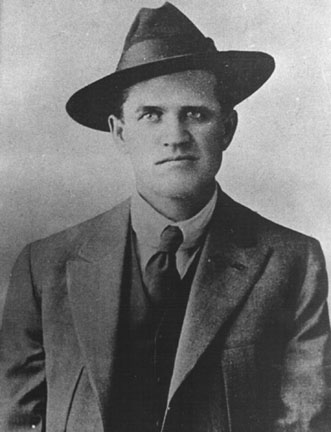
Whereas Europe has had a tradition of strong socialist and communist parties in the United States such parties have always been confronted with a virulent anti-communism. Attacks against labour unions and the right to organise have been particularly vicious in the USA.

Sacco and Vanzetti
Frank Little of the Industrial Workers of the World was lynched in August 1917 by six thugs who pulled him out of his bed and Joe Hill was judicially murdered in Utah in 2015. Twelve years later two Italian born anarchists, Sacco and Vanzetti, were again judicially murdered on trumped up charges in Massachussetts.

Nonetheless the United States has had a rich socialist history of class struggle such as in the car factories of Detroit in the 1930’s. In 1912 when Eugene Debbs stood for President he got nearly a million votes and 6% of the vote. In 1920 he stood again and got nearly a million votes but just 3.4%.
The first Red Scare was in the first World War when Debb’s Socialist Party opposed the draft. A speech in Canton Ohio on June 16 1918 at the end of the war when Debs declared that:
“The working class have never yet had a voice in declaring war. If war is right, let it be declared by the people – you, who have your lives to lose.”
led to a prosecution under the Sedition Act and Debs being sentenced to 10 years imprisonment, of which he served 32 months before being pardoned.
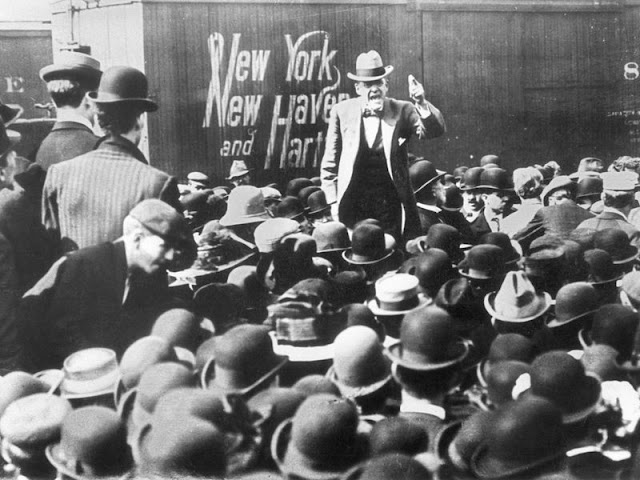
Debs campaigning for President in 1912
In the post-war period McCarthyism and anti-Communist hysteria led to a witch-hunt of supporters of all progressive and radical politics. This was depicted by Arthur Miller in The Crucible, which was ostensibly about the Salem Witchhunt. People like Pete Seeger and Charlie Chaplin were victims of the determination of the American Right to root out anyone who was seen as an opponent of US imperialism and its war machine.
It was only with the movement against the Vietnam War that radical and socialist organisations began to resurface and grow. Nonetheless the American political environment is very different from that in Britain or Europe. There is no equivalent to a mass social democratic or Labour Party. Instead there are two capitalist parties – Republican and Democrat.
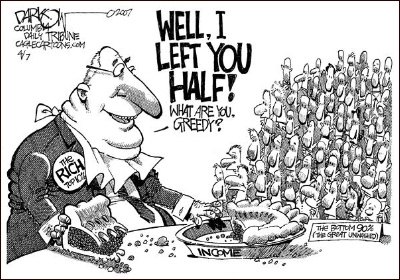
The Democrats were originally the party of Dixieland, the KKK and White Supremacy. In the 1950’s and 1960’s it became the party of civil rights and an end to segregation and the Big Society. This caused a rupture in its southern base with the Democratic Governor of Alabama, George Wallace, running an independent campaign for US President in 1968 having coined the slogan 5 years earlier ‘segregation now, segregation tomorrow, segregation forever’. Wallace won 5 states in the Deep South.
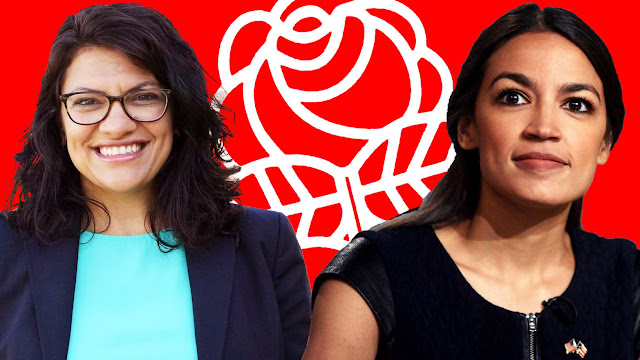
Rashida Tlaib and Alexandria Ocasio-Cortes
In the Congressional elections last year, Bernie Sanders, the Independent Senator for Vermont was joined in Congress by two members of the Democratic Socialists of America Alexandria Ocasio-Cortez of New York and the Palestinian-American Rashida Tlaib of Michigan. It has to be said that the DSA are a social democratic not a Marxist party. Class struggle is not to the fore in their politics.
Nonetheless this has provoked a backlash. In his State of the Union address, Donald Trump railed against the advance of socialism. when he warned that
“Here, in the United States, we are alarmed by new calls to adopt socialism in our country. … Tonight, we renew our resolve that America will never be a socialist country”
Not only Congressional Republicans but Nancy Pelosi joined in the applause!

An article in The Hill by Paris Dennard, a CNN political commentator and former Bush official explained:
‘The Democratic Party continues to go further to the extreme left. Their latest clarion call is the idea of “Democratic Socialism.” Socialism by any other name is still socialism, and trying to infiltrate it into our modern political process and system of government is dangerous.
There is no doubt that this new rise of socialism found in the base of the Democratic Party is a flawed economic ideology that must be challenged by all Americans who support free enterprise….
This is, of course, what the ‘anti-Semitism’ smear campaign and the launch of Chuka Ummuna’s TIG is about. Making the Labour Party into a safe party of capitalism.
Below are two interesting articles on socialism in Milwaukee and the Democratic stronghold of Chicago, home to the infamous Mayor Daley.
Tony Greenstein
When Socialism Was Tried in America—and Was a Smashing Success
For much of the 20th century, Milwaukee was run by socialists—and Time magazine called it “one of the best-run cities in the U.S.”
April 6, 2019 John Nichols The Nation

Dan Hoan, Milwaukee’s mayor from 1916 to 1940. (Milwaukee Public Library / Historic Portrait Collection), (Milwaukee Public Library / Historic Portrait Collection)
“If I owned all the real estate in the world, I wouldn’t feel so powerful as I do on the streets of this socialist city,” declared former New York City councilman Baruch Vladeck when he arrived in Milwaukee in 1932 for the Socialist Party’s national convention in that city.
Norman Thomas, the famed civil-rights and economic-justice campaigner who became the party’s presidential nominee that year, celebrated the fact that he was chosen for that honor in a city governed by Socialists. The success of Milwaukee under then-Mayor Dan Hoan, Thomas said, was proof that the party’s social-democratic “dreams will someday come true.”
“Someday” was dramatically delayed by the results of the 1932 elections. The Socialist ticket did well, securing almost 900,000 votes nationwide and registering its highest percentage of the total vote in Wisconsin. The winner of that year’s race, Democrat Franklin Delano Roosevelt, took notice: He met with Thomas after the election and borrowed liberally from proposals that had long been championed by the Socialists—for a Social Security system, unemployment compensation, strengthened labor unions, and public-works programs. Roosevelt’s New Deal took the wind out of the Socialist Party’s sails in the national arena, but the party remained a force in Milwaukee for decades to come.

Now that Milwaukee has been selected as the host city for another national convention—that of the Democrats in 2020—Republicans have suddenly discovered its history. “No city in America has stronger ties to socialism than Milwaukee,” griped Wisconsin Republican Party director Mark Jefferson. “And with the rise of Bernie Sanders and the embrace of socialism by its newest leaders, the American left has come full circle. It’s only fitting the Democrats would come to Milwaukee.” Wisconsin Republican Senator Ron Johnson said the Milwaukee convention would provide a “firsthand look” at “the risk of Democrat socialistic tendencies.”
Apart from the fact that Wisconsin’s top Republicans don’t seem to like the state—or its history—very much, the GOP response is comic. Many Wisconsinites know that their state has a long, rich socialist tradition, and that Milwaukee’s association with it is one of the coolest things about the city. It even earned a mention in the movie Wayne’s World, when rocker Alice Cooper explains, “I think one of the most interesting aspects of Milwaukee is the fact that it’s the only major American city to have ever elected three Socialist mayors.”
The Democratic Party is not a socialist party, but the delegates to its 2020 convention might nominate a democratic socialist, Vermont Senator Bernie Sanders, for president. And when they convene in Wisconsin’s largest city next summer, they shouldn’t hesitate to take the Republicans up on their call to highlight lessons from Milwaukee’s Socialist past. Doing so will strengthen the hand of the party’s eventual nominee, whether it’s Sanders or another of the contenders, all of whom will surely be labeled “socialist” by Donald Trump and his troll army.
Instead of fearing mention of the S-word, Democrats can and should approach it as smart Republicans have the L-word—“libertarian.” Republicans frequently borrow from the libertarian lexicon and toolbox, and acknowledge as much, without abandoning their essential partisanship. Democrats ought to be similarly limber. It’s great that the party now has a strong democratic-socialist wing, which includes Sanders and members of Congress like New York’s Alexandria Ocasio-Cortez and Michigan’s Rashida Tlaib. But Democrats who do not identify as socialists can still follow the lead of FDR and the late senator Edward Kennedy, who worked closely with and celebrated the ideas and ideals of democratic socialist Michael Harrington, author of The Other America, a groundbreaking study on poverty. Another 2020 Democratic presidential contender—Pete Buttigieg, the mayor of South Bend, Indiana—gets it right when he says that the old Republican strategy of attaching a “socialist” label to every progressive idea is just that: old. “Today, I think a word like that is the beginning of a debate, not the end of the debate,” explains the most millennial of the Democrats’ presidential prospects.
Buttigieg says that the S-word has “lost its ability to be used as a kill switch on debate,” arguing: “If someone my age or younger is weighing a policy idea, and somebody comes along and says, ‘You can’t do that—it’s socialist,’ I think our answer is going to be, ‘OK, is it a good idea or is it not?’”
Polling tells us that young voters are more comfortable with socialism than capitalism. Older voters may still be susceptible to Republican appeals rooted in Cold War hysteria, but the challenges posed by the existential crisis of climate change and the radical transformation of our economy in an age of AI-driven automation are going to make everyone far more open to radical responses. And many of the best of these—especially those that call for expanding the social-welfare state—will draw from historic and contemporary socialist thinking.

Democrats can get ahead of the curve and disarm Trump and the trolls by embracing the opportunity that Milwaukee offers to talk about socialism as it has existed and succeeded in the United States. For American socialists in the 20th century, Milwaukee was a political mecca, a city that tested and confirmed the validity of their ideas. Vladeck, then the manager of The Jewish Daily Forward (these days known simply as The Forward), called it an example of “the America of tomorrow.”
Socialists were proud to point to Milwaukee, which had a Socialist mayor for most of the period from 1910 to 1960, as a model of sound and equitable governance. And they were not alone: During Hoan’s 24-year tenure, Time magazine reported, “Milwaukee became one of the best-run cities in the U.S.”
Hoan also took on the Ku Klux Klan in the 1920s, at a time when politicians in both the Democratic and Republican parties were compromising with the violent racists as they extended their reach from the South to northern cities. “The Ku Klux Klan will find Milwaukee a hotter place to exist in than Hades itself,” the mayor declared in 1921.
Hoan’s integrity, along with his managerial skills, would eventually earn him recognition as one of the 10 finest municipal leaders in American history. In The American Mayor, his groundbreaking 1999 assessment of municipal governance in cities across the country, Melvin Holli wrote:
“Although this self-identified socialist had difficulty pushing progressive legislation through a nonpartisan city council, he experimented with the municipal marketing of food, backed city-built housing, and was a fervent but unsuccessful champion of municipal ownership of the street railways and the electric utility. His pragmatic ‘gas and water socialism’ met with more success in improving public health and in providing public markets, city harbor improvements, and purging graft from Milwaukee politics.”
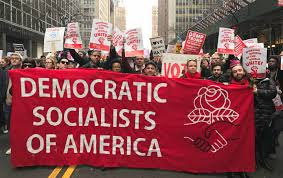
Emil Seidel and Frank Zeidler, the mayors who served before and after Hoan, were Socialists as well. And Milwaukee voters elected dozens of Socialists to the city council, county board, school board, state legislature, and Congress. Milwaukee’s Socialists were so fiscally and socially responsible that historians to this day hail them as exemplars of a uniquely American form of democratic socialism. Zeidler once explained to me,
“Socialism as we attempted to practice it here believes that people working together for the common good can produce a greater benefit both for society and for the individual than can a society in which everyone is shrewdly seeking their own self-interest.”
That worked well for Milwaukee in the 20th century—so much so that “socialism” ceased to be a scare word for the city’s residents. What frightens Republicans today is that “socialism” is ceasing to be a scare word in our contemporary national discourse.
John Nichols is The Nation’s national-affairs correspondent. He is the author of Horsemen of the Trumpocalypse: A Field Guide to the Most Dangerous People in America, from Nation Books, and co-author, with Robert W. McChesney, of People Get Ready: The Fight Against a Jobless Economy and a Citizenless Democracy.
America’s Socialist Surge is Going Well in Chicago
Tuesday night’s elections saw the largest socialist electoral victory in modern American history
April 3, 2019 Micah Uetricht
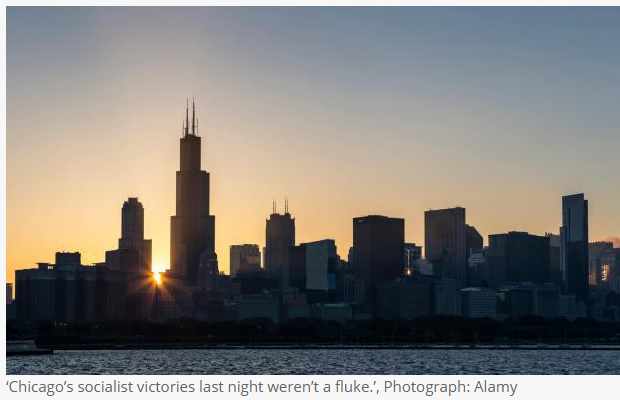
The United States is experiencing a socialist surge right now. That surge came to Chicago last night, where democratic socialists won big in the second, final round of municipal elections.
Three Democratic Socialists of America (DSA) members won their city council races in runoff elections on Tuesday: Byron Sigcho-Lopez in the 25th ward, Jeanette Taylor in the 20th and Andre Vasquez in the 40th. The fourth candidate, Rossana Rodriguez-Sanchez, is locked in a race in the 33rd ward that is too close to call and will await the counting of mail-in ballots, but was up by 64 votes once all precincts’ votes were counted.
They will join two other socialists who handily won the first round of elections outright in February: Carlos Rosa, an incumbent in the 35th ward, and Daniel La Spata, who defeated an incumbent in the first ward.
Add them up and you’ve got at least five, maybe six democratic socialists who will be on the 50-member Chicago city council. Few major American cities have seen even a single socialist councilor in generations; the third-largest city in the US could soon have half a dozen. It’s the largest socialist electoral victory in modern American history.
The socialists won by strong, straightforward campaigning on working-class issues. Rosa, for example, made his race a referendum on affordable housing in a rapidly gentrifying neighborhood, painting big real estate developers as the enemy and demanding rent control in the city.
Taylor, a longtime neighborhood and education activist on the city’s South Side, demanded the forthcoming Barack Obama presidential library in her ward include a community benefits agreement to fight displacement of working-class residents. In 2015, she participated in a 34-day hunger strike to demand the reopening of Walter H Dyett high school; her website homepage reads: “Send a Dyett hunger strike to city hall.”
And Rodriguez campaigned on a history of activism for affordable housing and immigrant rights in a gentrifying, working-class immigrant neighborhood and against privatization of public services and expansion of police power in the city.
In other words, these democratic socialists ran as unabashed fighters against corporate greed and austerity and for the city’s working class.
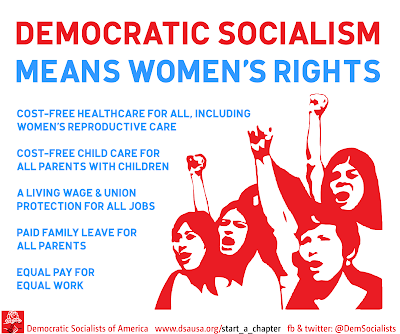
Political observers and organizers should take these victories as a lesson: voters found that strong leftwing message appealing – and weren’t scared off by candidates who proudly called themselves “socialists”.
Socialism is spreading throughout the US, as seen in the popularity of the Vermont senator Bernie Sanders and New York representative Alexandria Ocasio-Cortez, and the huge bump in DSA membership, increasing more than seven times over to 60,000 in the past three years. But what sets Chicago apart from many other cities in America – and played a crucial role in last night’s socialist victories – is that the left wing of the city’s labor movement hasn’t been afraid to partner with democratic socialist candidates.
Since its 2012 strike, the Chicago Teachers Union has served as the anchor of the city’s labor left. The CTU, along with community groups and other progressive unions such as SEIU Healthcare Illinois and Indiana, formed a political organization called United Working Families (UWF) in 2015. Many union leaders, in Chicago and elsewhere, are skittish about backing openly socialist candidates.
UWF appears not to be, endorsing most of the DSA’s city council candidates (and in many cases expended significant resources on them). Another progressive electoral group, Reclaim Chicago, was the principal backer of two of the victorious DSA members, Vasquez and La Spata.
That coalition of left unions and community groups will be crucial in the years to come. Last night also saw the election of the Chicago’s first black woman mayor, as well as its first lesbian mayor, Lori Lightfoot, a former prosecutor and corporate lawyer.
Lightfoot claimed to be a progressive, but her record has been scrutinized by criminal justice activists and the CTU (which backed Lightfoot’s opponent, Cook county board president Toni Preckwinkle); she drew a large donation from a murky “dark money” group that uses vague pro-austerity rhetoric as well as support from Emanuel’s personal lawyer. The city’s labor movement and left will probably find themselves joining together to fight Lightfoot in office.
Chicago’s socialist victories last night weren’t a fluke. Throughout the country, people are tired of low wages, soaring housing costs, privatization of public goods, budget cuts and corporate giveaways of public money. They have tried austerity and found it miserable.
If Chicago’s elections are any indication, maybe they’re ready to try socialism.
- Micah Uetricht is the managing editor of Jacobin magazine. He is the author of Strike for America: Chicago Teachers Against Austerity (Verso, 2014) and a member of the Chicago Democratic Socialists of America